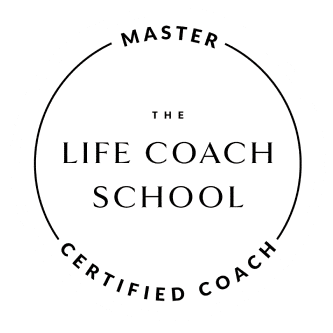Podcast: Play in new window | Download

Having a specific niche that you address is generally an easier way to gain traction in your business than if you didn’t have one. A niche is all about solving a specific problem for a specific person, and this process of picking one tends to cause a lot of drama for new coaches and teachers.
However, if you’ve already picked a niche for your business that’s working and you feel like you’ve reached a point where you want to change it up, should you? This is something I used to wholeheartedly advise against, but my perspective on it has evolved over time. I’ve discovered that this process is all about listening to and trusting your gut, and I’m offering some things for you to consider this week.
Tune in today to hear my answer to the question of whether or not you should change your niche. You’ll hear how all niches have challenges and opportunities, why I used to discourage my clients from changing their niches, and what I think are great reasons to change your niche, versus reasons that will end up unnecessarily slowing you down.
My business coaching program is open right now! We can’t take on as many people this year as we have in years past, so if you want to get in, make sure to check it out soon. Click here for more details!
I want to give away all of my best secrets, and that’s why I’ve created a free training. If you’re a coach or you want to start a similar business and are struggling to figure out how to get started, you need this training. To get it, all you have to do is click here!
What You’ll Learn on this Episode:
- What a niche means.
- Why we get hung up on choosing the right niche.
- My thoughts on great reasons to change your niche versus reasons that will just slow you down.
Mentioned on the Show:
- When you’re ready to take what you’re learning on the podcast to the 10X level, then come check out Be Bold.
- If you’re a coach who is already certified through The Life Coach School, I want to help you take your coaching to the next level. Interested? Get on the waitlist here.
- Join me in Business Minded here.
- Follow me on Instagram or Facebook!
- Grab the Podcast Roadmap!
- Better Than Happy: Connecting with Divinity through Conscious Thinking by Jody Moore
- Follow my brand new business Instagram account where I’ll be sharing my business tips for all you entrepreneurs!
- Get my Free Training on How to Develop a Coaching Practice
I’m Jody Moore and this is Better Than Happy, Entre-Talk: Should You Change Your Niche?
This is Better Than Happy, the podcast where we study what the healthiest, most successful people in today’s world think, feel and do. And we leverage this knowledge to create our best lives. Are you ready, little bird? Let’s fly.
Okay, everybody, listen, you probably think you know what I’m going to say if you’ve listened to me very much or you’ve heard me coach on business niche stuff before but you might be surprised what I’m going to say about changing your niche today. So listen up, before we get into it, if you haven’t checked out Better Than Happy Business School, my brand new business coaching program. We changed everything from how we’ve done it the past two years. We took all the best of it and brought it in and we took all the parts that we thought could be better and made them better.
And we have a brand new program with a lot of live components where you’re going to come and work with me live, my coaches and I. And we’re going to do some of the work together and set you up so that you know how to go home and do the rest of the work on your own. And then we’ll come back and it’s just, I’m very excited about it. The live pieces all happen in Salt Lake City. And it’s going to be good.
So anyway, if you haven’t checked that out yet before the spots all fill up, and I should say I’m recording this episode, gosh, a month or so in advance. So I don’t know, maybe by the time this airs, they’ll all be full. I don’t know, but go check it out, just in case, Jodymoore.com/businessschool and learn all about how to, let’s get your business to the next level. Where do you want it to be? What is next level? Is it six figures? Is it multiple six figures? Is it seven figures? Whatever it is, let’s do that this year.
Okay, so should you change your niche? Niche is a fancy word for target market. If you like the word target market better, great. If you like to say niche, say niche, I don’t really care. What we mean is the specific problem you solve and the specific person you solve it for. So again, I’m going to really tailor this to coaches, healers, experts, energy workers. You know who you are.
If you solve a specific problem for a specific person, it’s going to be easier to get traction than if you try to do everything for everyone. This is generally true. Now, there are always exceptions to every rule. Do you want to put yourself out there as a general coach? Okay, do it. I mean, in my work. I have seen it work for some people. So these are not hard and fast rules. These are just overall principles that tend to be true and I didn’t make these up.
I was taught these by many other people who find this to be true in general, but by all means, prove me wrong. I’d be delighted to be proven wrong about this. But in general, if you try to offer a specific solution to a specific person, you’re going to have an easier time getting people’s attention. It will be easier to get people to stop the scroll and pay attention and go, “Wait. What is that?” And this is true whether you’re running paid ads or not. Stop the scroll is just a general term I use for stop and listen and pay attention.
But what is that problem and who is the person it’s for is something that causes a lot of drama for a lot of new coaches and teachers. And I don’t know why, but we just get so hung up on what is the right thing to pick. I think that we make it about us way more than we should. In other words, it’s not your identity, it’s just what you’re going to be doing for your business.
Of course, a lot of us tend to choose a problem or a person that is similar to ourselves, who we are, and a problem that we have solved through whatever it is that we teach. That’s very natural and normal. But for whatever reason, we get hung up on it because if you’re like me, coaching helped you in so many areas. So to pick one can feel challenging but at any rate, I recommend that you do so.
Now, a lot of times what I see is entrepreneurs start working on their business and suddenly they want to do a change, they want to change it all up, they want to do something different. And I used to years ago when I first started business coaching through other organizations even, not even in my own program, I used to be like, “Do not change your niche.” I was pretty stickler about it because most often I saw that all that did was slow people down.
And I am not exaggerating when I say I have seen coaches who are spinning in the same point of trying to get their business up and running because they just keep changing their niche. And every time you change your niche, you basically have to start all over. But since my days of being a stickler about it, I have eased up a lot because you know what? Sometimes I think even if it slows you down and causes you to spin, that might be necessary for you.
That might be part of your process as an entrepreneur to really figure out what you’re doing or to become convinced that the niche doesn’t really matter. And it’s fine. It’s fine to go through a process like that. There’s no reason to be in a rush. And sometimes it does end up being the right move and it does result in the change that you hoped it would. So I want you first and foremost to trust your gut and to make the decision that feels right to you.
I do not know whether or not you should change your niche as much as you know. But I do want to inform your intuition, we might say with some things to consider. That’s all I’m trying to do here today, give you some things to consider. Because oftentimes changing your niche slows you down. I like to think about getting to whatever is your next goal in your business is like trying to get to the top of a mountain. We’re trying to climb a mountain. At the top of the mountain is I just achieved my goal. Of course then we’re going to have another mountain to climb.
Because even if you decide you don’t want to grow more, you’re probably going to need to keep revising, keep improving. Revenue and growth doesn’t have to be the only goal but just to simplify it. Let’s say you’re trying to make 100K. So getting to the top of the mountain equals having a 100K business that you can generate 100K of revenue in a year through clients that you’re serving and making a positive impact in the world. And you choose a niche and you’re going to start trying to figure out how to find those people. Where are they? How do we get their attention?
How do we generate leads? In other words, how do we get names and emails that we can keep serving and talking to or subscribes to podcasts or YouTube or things like that, followers on Instagram? How do we get people following us who like what we teach? How do we take good care of those people and provide them results? How do we make them an offer and find the ones who want more and are willing to pay for more help? And then how do we deliver on that offer? That’s essentially what we’re trying to do.
So if I change my niche, and I’ve been doing all of that for one person and one problem, now I’m going to do it for another one, I’ve got to start all over. Everything I’ve done, most of what I’ve done anyway is probably not usable anymore. I’ve got to redo it all. I’ve got to shift it all. So this is the reason I hate to see people change their niche. But again, do it if you want to, but keep these things in mind. I will tell you what I think is a great reason to change your niche first of all. And then I’m going to give you some other reasons that I think are just distractions that may slow you down.
I think the best reason to change your niche is you’ve tested out this one and it’s not converting. And so you’re thinking that the problem you solve and the person you solve it for is not something that’s going to be easy for you to get traction on. It’s not something that enough people need or want and are willing to pay money to solve. And you tested it not just by talking to a couple of your friends, not just because of something you overheard on somebody’s podcast one day.
But you actually put enough of it out there in what you think is a pretty compelling way and you’re not getting enough traction. People are not opting in to the thing that you put out there. People are not biting, this is like fishing and you’re not getting bites often enough that you want to try fishing in a new pond. That’s a great reason. Have you tested it? Have you tested it in front of enough people? Have you done your due diligence to make sure you’ve really clearly explained what you do?
And when I say test it, I don’t even mean you have to test it all the way through to your offer, just test opt-ins. When I first started I wanted to coach women who were stay at home moms who were members of the LDS church. And I wanted to help them be less frustrated and more confident. And I didn’t know anyone else doing that exactly, not anyone that was really having success. So I had to go test it. So I started putting content out there.
I started putting blog posts out there that spoke to how challenging it is to be a mom and how being a member of the LDS church is such a blessing, but then we can use it against ourselves. And how difficult it is to be confident. And how difficult it is to not yell at your kids. And I just started offering, first of all, content and seeing if people read it, liked it, shared it. And I asked them to do all those things by the way, if you like this please share it. If you like it, please send me a message and let me know. And I put it in front of as many people as I could.
And then I started putting opt-ins out there. So rather than just ask for a little bit of their attention, I asked for their name and email address. If you like that, do you like this thing on how to stop yelling at your kids? Do you like this thing on how to be more confident as a mom and a member of the LDS church? Do you like this thing? Whatever I could think of that would speak to those people that led to what I ultimately coached on.
I started putting it out there asking for people’s attention, asking for their likes, their comments, their shares, asking for them to share it with others, asking for them to at some point subscribe with a name and email. And I was able to get traction. Now, don’t get me wrong, I’m not talking 100% conversions on anything. I’m talking, hey, if out of 100 people, 10 to 15 subscribed and liked it, it’s a win. This is good. There are more. If there are 10 to 15 out of 100, then there are way more out there that I can probably go find.
So if you’ve truly tested it, not just anecdotally, not just your guest or what your cousin said that she doesn’t think that’s going to work. And it’s not converting and you’ve made a few tweaks and you’ve made it as compelling as you can, then maybe you need to change your niche. Maybe you will need to try a different niche.
Now, here are the reasons I hear people say sometimes when they say to me, “I think I’m going to change my niche. Do you think that’s a good idea?” And I say, “I don’t know. Tell me, why do you want to change your niche?” And if they give me an answer like that, I’ve tested it. It’s not converting. I tweaked it. It’s still not converting. I tweaked it a third time. I’m not really sure I want to keep on this niche. I’m like, “Great idea. Let’s change it up.”
But usually they say something like this, “I think I’m tired of talking about that subject. That used to be a challenge for me and now it’s not. And so I don’t really want to keep talking about that all the time.” I’m like, “Okay, good. Not saying you can’t do it, but that’s just going to slow you down. If you’re okay with starting all over, having this take a lot longer, then change it.”
But otherwise guess what? You’re going to talk about all kinds of things. If you’re a coach, and even I would say for teachers, there was a woman on a call the other day, one of the calls I did. She’s getting her real estate license but she really wants to coach people. She’s like, “I’m getting my real estate license because I know I can make a lot of money that way, but I don’t really want to do that. I want to be a coach.”
I was like, “Do you know when people really need coaching? When they’re trying to buy or sell a house? Do you know how much emotion and drama we have around that topic? You could be an amazing real estate agent who knows coaching. You have so many chances to coach people as a real estate agent.” And she’s like, “Oh, yeah, I never even thought about that.”
So just be careful about writing off whatever area is your area of expertise, the market that you know, the skills that you have, the experience that you have. There’s probably a way to do some teaching and coaching within it. And even if let’s say you start coaching women who are newly divorced and then you realize, you know what? As a coach myself, I went through divorce and coaching helped me and so I wanted to help people in that area.
But now I’ve been divorced for so long, and maybe now I’m remarried and I don’t even think about that. I don’t want to keep talking about it. That’s one that I’d be like, “Really? Because remember your niche is for marketing. And it’s an area where you can do an extreme amount of good in the world and yes, your experience helps. But in the end, you’re going to get those women in there and you’re going to talk about their relationship stuff, but you’re also going to talk about money and you’re going to talk about their confidence.”
And it all comes back in the end to if we all just liked ourselves better, we wouldn’t have any of these problems. So don’t confuse your marketing is what I’m saying with the coaching itself. You’re going to coach on all kinds of subjects under the sun. Again, even as a real estate agent, she kept saying, “I just want to help people.”
I was like, “You can help people by helping them buy or sell a house. And along the way, there will be so many other ways that you can help people because you understand coaching. Do that, just let being a real estate agent be the way that you find the people that you’re going to help.”
Okay, another reason I hear people say is they’re like, “Well, I was doing this niche and it was working fine. I’m getting clients but then I read this book on this thing or I just solved this other problem for myself and now I’m so excited about that.” If you’re like me, you like to read, you like to learn, you like to keep working on your own stuff. And you’re going to get excited about new things. And that doesn’t necessarily mean you just want to change your niche and drop it all and start over.
Let that thing be something exciting for you. Maybe you even weave it in somehow to the niche you already have a little bit, but it doesn’t necessarily mean you want to go back to the bottom of the mountain when you’ve hiked halfway up a mountain and start the hike all over. See what I’m saying?
This is another one I hear a lot, they’re like, “Well, okay, I have an opt-in, it’s doing well. I’m getting leads and then people are coming to consults and I’ve gotten some clients and everything. “But let’s just go back to the example of the niche of helping newly divorced women navigate their lives. They’ll say, “But a lot of the women coming to me, they’re not divorced. They’re just struggling in their marriage or they got divorced a long time ago or they didn’t even want coaching on their relationship, they wanted it on something else. This thing keeps coming to me. I think I should do that.”
And I’m like, “Whoa, hold the farm just a minute. The niche is for marketing. For whatever reason, it’s getting people’s attention even if the people’s attention it’s getting are not your ideal client. If they come along and they want help and you feel like you can help them then it’s working. Do not just change it because people coming to you happen to have a certain thing.”
Now, also check yourself because this is what people say, “Well, I’m just getting tons of people who come to me with this particular issue.” And I’ll say, “Really? How many people have come to you with that?” And it’s usually two or three even, which is great, but I’m like, “But that doesn’t necessarily mean that’s a hot niche.” If I picked that one all of this would just blow up and be easy.
It doesn’t necessarily mean that, it often doesn’t mean that. It means for whatever reason, you had a few people at the same time with that problem. Great. This means your niche is working, your marketing is working. Why are we going to change it? Keep going.
So I think those are the main ones I hear. Again, I will reiterate what I said in the beginning, which is if you want to, do it and I am still your biggest fan and supporter and I will help you in any way I can. Just know that every time you change your niche, you’re basically going to the bottom of the mountain and starting the hike over. And make sure that you have a reason you like for doing that. And there can be any reason that you can like.
You might just go, “Yeah, but I just want to.” Cool. I’m down with it. Just make sure you understand what you’re doing, because there’s no perfect niche. There’s no trail up the mountain at which at some point you won’t have to cross a muddy, swampy field that you don’t really want to cross, or that you won’t run into some rain here and there. And then you’ll also have sunny patches with any niche. And you’ll have times when certain things become easier or are more fun.
But any niche has challenges and opportunities and if you test it and you get some traction I would run to the top of the mountain with that niche. Just saying. Alright, thanks for joining me today, everyone. I’ll see you next time on another Entre-Talk episode.
If you are a coach, healer or expert who is not yet making six figures, or not sure you’re set up properly to grow to seven figures and beyond, go take my free training. It’s at jodysfree-training.com. I’ll see you there.
Enjoy the Show?
- Don’t miss an episode, follow on Spotify, Apple Podcasts, Google Podcasts, or RSS.
- Leave us a review in Apple Podcasts.








